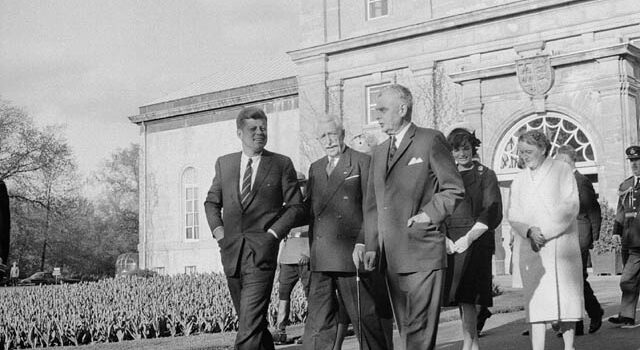The decision to agree to a copyright term extension in the USMCA is harmful policy, made worse by the decision to bury plans for implementation in Finance Minister Chrystia Freeland’s Budget 2022. As a result, there will be a two decade moratorium on new works entering the public domain, creating an enormous negative impact on access to Canadian culture and history for a generation. My first post examining the cost focused on some of Canada’s most decorated authors, whose works will be locked out of the public domain for a generation.
The negative impact of term extension on access to Canada’s history is equally damaging. Historians will lose public domain access to the works and papers some of Canada’s most notable leaders and figures of modern times, including leading Prime Ministers, Premiers, First Nations leaders, and Supreme Court justices. They include:
- W. A. C. Bennett
- Jean-Jacques Bertrand
- Thane Campbell
- John Diefenbaker
- George A. Drew
- Tommy Douglas
- Gérald Fauteux
- Hugh John Flemming
- Leslie Frost
- Stuart Garson
- Richard Hatfield
- Henry Hicks
- Bora Laskin
- Jean Lesage
- René Lévesque
- Wooodrow Lloyd
- George Manuel
- Alexander Wallace Matheson
- William John Patterson
- John Robarts
- Walter Russell Shaw
- Joey Smallwood
- John Sopinka
- Louis St. Laurent
- Ross Thatcher
These great Canadians – Diefenbaker, Douglas, Hatfield, Laskin, Lesage, Lévesque, Robarts, Smallwood, St. Laurent and many more – helped shape a nation. To withhold their works from the public domain for decades represents an enormous collective loss to our culture and heritage.
Once again, as discussed in this post, the best approach for the government to mitigate against these harms is the implementation of a registration requirement. Registration would allow rights holders that want the extension to get it, while ensuring that many other works enter the public domain at the international standard of life plus 50 years. By providing for life plus 50 and the option for an additional 20 years, Canadian law would be consistent with Berne Convention formalities requirements and with its trade treaty obligations.








Pingback: more harm than good | Fair Duty